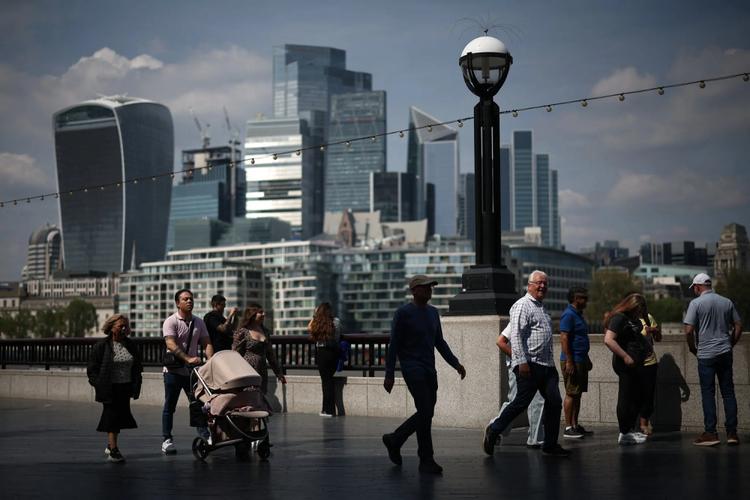
Recently, the debate over the economic legacy of the British Labour Party has become increasingly heated, especially whether the economic environment claimed by the Labour Party is really as bad as it claims. Shortly after the election, the new Chancellor of the Exchequer Rachel Reeves declared that the Labour Party had "inherited the worst economic environment since World War II". However, opposition party members pointed out that the Labour Party's description of the current state of the UK economy is inconsistent with recent data. Conservative Party's new MP Nick Timothy bluntly stated that the Labour Party is "deceiving the public".
According to the latest data from the UK Office for National Statistics, after a 0.7% economic growth in the first quarter, it is expected that the economic growth in the second quarter of 2024 will reach 0.6%. Since former Prime Minister Rishi Sunak proposed the five commitments, the annual CPI inflation rate has significantly decreased, dropping to 2.2% in July, far below the previous peak of 11.1%. Sunak stated that these positive data indicate that 'our plan is yielding results'.
Firstly, the Labour Party's claim to have inherited the worst economic environment since World War II is not accurate. Since 1945, per capita GDP has grown more than fourfold, and life expectancy at birth has increased by approximately 15 years compared to 1945. At the end of World War II, the government debt to GDP ratio was as high as 270%, but now this ratio has dropped to about 89%.
Secondly, the Labour Party claims that they came to power during a period of poor economic management, which does not fully support the analysis of the economic situation from 2010 to 2024. Although there have been signs of economic recovery in recent quarters, per capita GDP has only grown by 5.6% since the outbreak of the financial crisis in 2007, during which the economy has actually experienced a 17 year stagnation period. During this period, the originally growing life expectancy also stagnated, and key indicators of the NHS deteriorated, increasing from about 2.5 million waiting patients when the Conservative Party came to power in 2010 to over 7.6 million by the end of 2023.
The reasons for economic stagnation may involve the financial crisis, the legacy issues of Brexit, and the severe impact of the pandemic on the economy. Although the financial crisis occurred during the Labour Party's tenure, the Conservative Party did not completely shake off its influence in subsequent management. Although the Labour Party hopes to 'make Brexit work', they have accepted the Brexit agreement without making significant revisions to mitigate the negative impact of Brexit on the economy. It is widely believed that Brexit has caused serious damage to UK trade, but the Labour Party has chosen to downplay its impact and emphasize more on the management issues of Brexit.
Other countries have also experienced long-term economic stagnation, and economists can propose multiple explanations, but the exact reasons are often difficult to determine. There are significant differences in per capita GDP among different countries, which may be partly due to errors in policy choices and lack of support for effective policy improvements. However, the fundamental reasons for stagnation and how to address this issue are still under debate.
It is still uncertain whether the stagnation of the UK economy can be quickly reversed by the New Labour government. If the cause of stagnation cannot be accurately diagnosed and policy changes cannot be confidently predicted to be effective, simply blaming the Conservative Party may not be fair enough. The difficulty of improving long-term economic growth and per capita income is significant, otherwise these issues would have already been resolved. Therefore, even if the UK economy performs poorly, it may not be solely due to the mistakes of the previous government.
Overall, it seems difficult to make substantial progress in this debate. The Conservative Party is currently mainly focused on internal leadership competition, and over time, the economic controversies from 2010 to 2024 will gradually be forgotten. The focus of discussion in the next election will shift towards the governance performance of the Labour Party after coming to power, rather than its previous economic legacy.

On November 19, 2025, US President Donald Trump signed a bill requiring the Department of Justice to release documents related to the case of the late tycoon Jeffrey Epstein.
On November 19, 2025, US President Donald Trump signed a bi…
While the world's attention is focused on the 21.3 trillion…
On November 12, 2025, US President Trump signed a temporary…
On November 19th local time, the US Department of Commerce …
Recently, a report from CNN pointed out that the Atlantic t…
Recently, the U.S. stock market has experienced a thrilling…